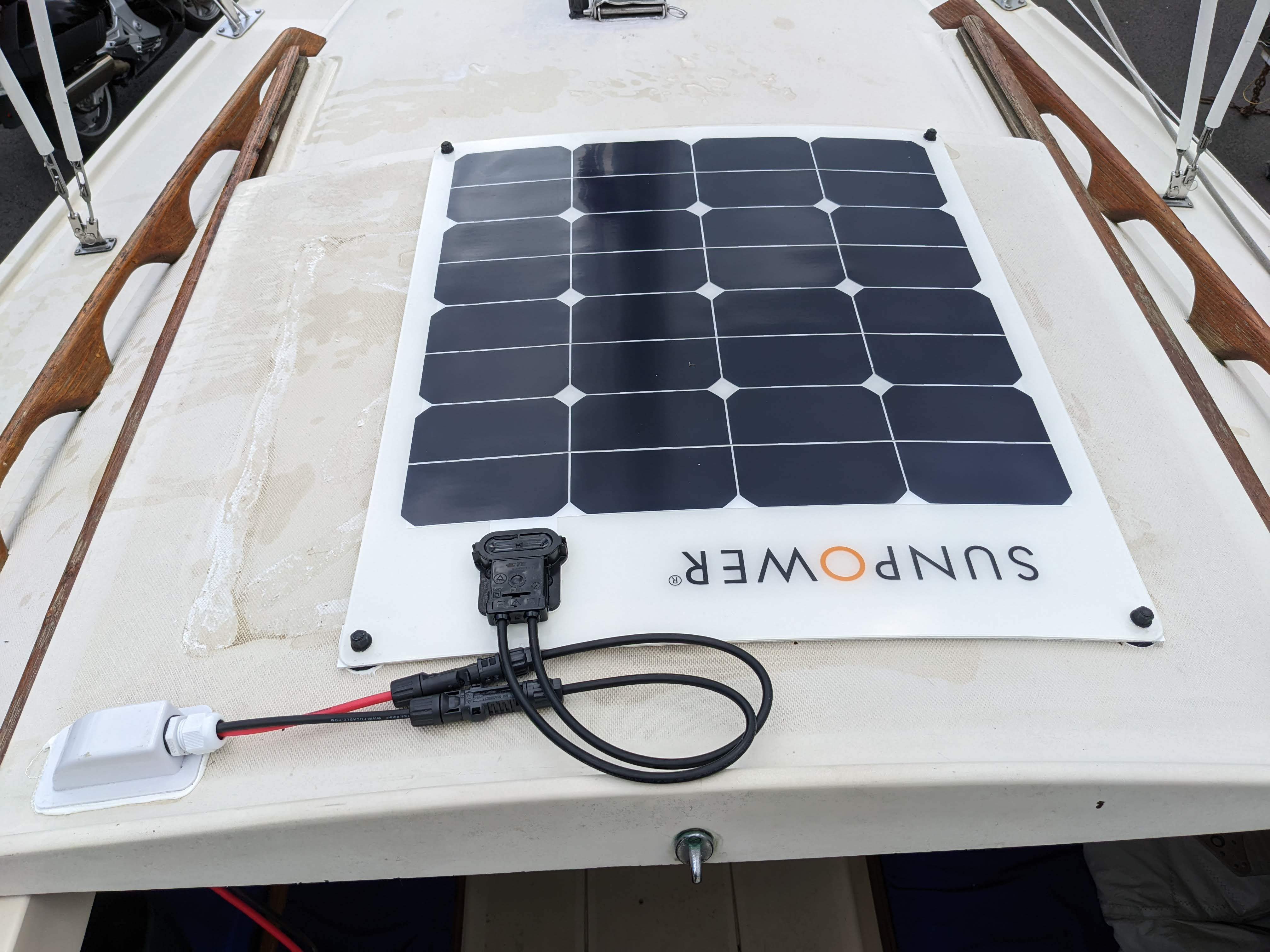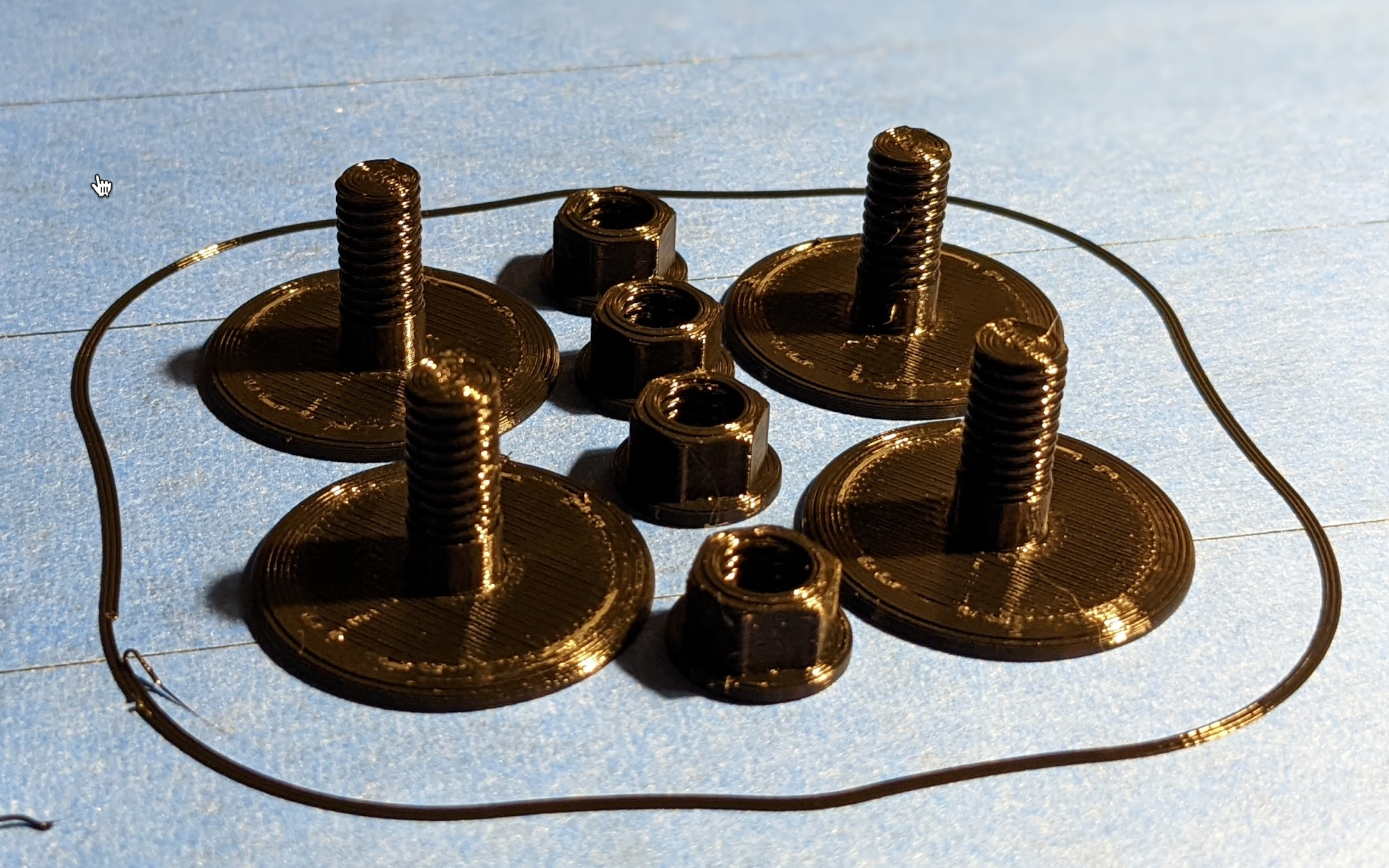I would through bolt the TPU and use a large washer on each side. Teflon lubricates the threads making it easier to turn. You want thread locker to keep a bolt from coming loose. Be careful with the thread locker since it eats many types of plastic.
3DPrinting
3DPrinting is a place where makers of all skill levels and walks of life can learn about and discuss 3D printing and development of 3D printed parts and devices.
The r/functionalprint community is now located at: [email protected] or [email protected]
There are CAD communities available at: [email protected] or [email protected]
Rules
-
No bigotry - including racism, sexism, ableism, homophobia, transphobia, or xenophobia. Code of Conduct.
-
Be respectful, especially when disagreeing. Everyone should feel welcome here.
-
No porn (NSFW prints are acceptable but must be marked NSFW)
-
No Ads / Spamming / Guerrilla Marketing
-
Do not create links to reddit
-
If you see an issue please flag it
-
No guns
-
No injury gore posts
If you need an easy way to host pictures, https://catbox.moe/ may be an option. Be ethical about what you post and donate if you are able or use this a lot. It is just an individual hosting content, not a company. The image embedding syntax for Lemmy is 
Moderation policy: Light, mostly invisible
Agree with all of this. Relying on the walls of TPU to hold threads in place doesn't seem like a great idea.
Yup, assuming the solar panels will be in the wind, potentially at highway speeds, absolutely do not rely on TPU threads for that. Threads rely on stiff material to transmit the forces from the angled faces of the thread into linear forces. Anything flexible will rip out very easily. It's shocking how fast a rubber material - even a firm rubber - gives up when real force is put onto it. It's like it's not even there.
The through bolt idea is pretty good. It should be easy enough to make a spool shape out of the TPU that will work as a shock absorber. Honestly even then I'd keep an eye on it to make sure it's not getting ripped up.
EDIT: I was curious how to quantify the difference, so I found this datasheet which shows the difference between the stiffness of rubbers, particularly polyurethane, which is what TPU is, and steel:
You're looking for Young's modulus, which is 1.3 - 2.1 GPa for polyurethane, and 190-220 GPa for the various steels. Steel is hundreds of times stiffer. And for the threads to fail, they don't need to be damaged, just shift out of the way enough to slip past each other.
Not to mention 3D threads will not be the right cross-section. It won't be face to face contact.
Use metal fasteners. Plastic fasteners are too weak for your application. The shear and tensile strength of plastic is quite low.
Yeah the idea to 3d print solar panel mounts with printed threads is probly a bad idea.
Teflon seals threads vs water or air, and works more like anti-sieze than a thread-locker. Coincidentally, Thread-locker can also keep water out, but I have no idea if there's any point in trying to use it with TPU.
I made flat head bolts out of pteg for solar panel mounted to my sailboat and while towing it to the lake they ripped out :( (and I lost the panel)
I made the bolt head like a flat washer so I could glue it to the boat then set the panel on it and secured it with a pteg nut.

What was the failure mode? Did the glue holding them down fail, did the nut rip off the stud, leaving a stud glued to the boat, something else?
Failures are never fun, but they can still be a great learning opportunity.
The pteg failed (sheered off near the "head" of the bolt/stud. The flat washer like heads were all still attached.
I had to replace the panel, and just went with SS screws right into the fiberglass. I also tape the leading edge during transport.
I'm guessing air got up under the front lip and just poof off it came. In my case these were fairly small which I'm sure didn't help my case.

Thanks for the follow up, as well as the photo!
Get PolyPropylen (PP) filament, a spare build plate and packaging tape
Nearly impossible to destroy on impact and one of the best layer adhesions possible.
edit: CNC kitchen video on PP: https://www.youtube.com/watch?v=yRw2mC_6A00